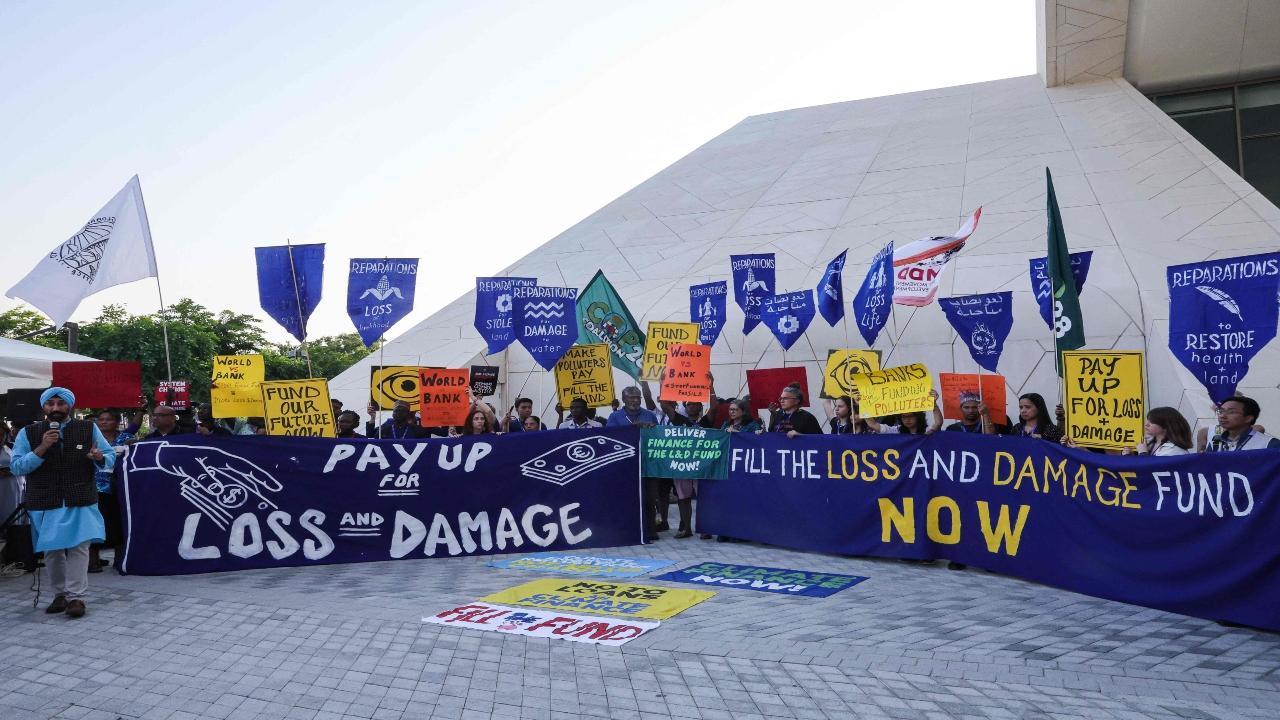The United Nations climate summit, COP28, witnessed a swift start on its first day, achieving rare quick action and agreement. However, as negotiators conclude the first week, they find themselves in a familiar and complex landscape, balancing momentum with roadblocks

Environmental activists display placards during a demonstration at the venue of the COP28 United Nations climate summit in Dubai on December 6, 2023. Pic/AFP
The United Nations climate summit, COP28, witnessed a swift start on its first day, achieving rare quick action and agreement. However, as negotiators conclude the first week, they find themselves in a familiar and complex landscape, balancing momentum with roadblocks.
ADVERTISEMENT
German climate envoy Jennifer Morgan acknowledged the mixed picture of negotiations, citing significant differences among individual states but emphasizing a collective will to make progress. Proponents advocating for a transformative phase-out of fossil fuels expressed hope tempered with concerns about potential obstacles.
While the conference saw the implementation of a climate compensation fund, known as loss-and-damage, with coffers exceeding USD 720 million, the focus now shifts to critical issues. Financial assistance for developing nations to decarbonize and adaptation strategies requires further attention and collaboration.
U.N. Climate Secretary Simon Stiell cautioned against viewing the loss-and-damage fund as a comprehensive solution to the broader financial aid needed to address emissions worldwide. Adnan Amin, a COP presidency official, expressed cautious optimism, acknowledging the inherent ups and downs in negotiations.
The Global Stocktake, assessing nations' progress toward climate goals and limiting warming to 1.5 degrees Celsius, has been a focal point. Negotiators produced a draft text, providing a foundation for further discussions, but uncertainties remain about the final agreement.
Cedric Schuster of the Association of Small Island States emphasized the importance of success in the Global Stocktake for achieving the 1.5 C limit. The debate extends beyond assessments, with a historic consideration of phasing out all fossil fuels. However, disagreements persist over terminology and timelines.
Environmental activist Romain Ioualalen noted unprecedented momentum in discussions about fossil fuel phase-out, despite opposition from some nations. The inclusion of this topic in the agenda represents a significant shift in climate talks.
Also read: Mumbai Police's cyber cell gets fraudsters deported from Dubai
Wednesday's sessions concentrated on the transport sector, a major contributor to carbon dioxide emissions. The discussions covered topics such as expanding electric vehicle infrastructure and decarbonizing urban freight transportation. Despite the growth of electric vehicles, oil still dominates the transport sector's energy usage.
As COP28 progresses, negotiators grapple with the complex challenges of achieving global climate goals. The debate over fossil fuel phase-out underscores the evolving dynamics in climate talks, reflecting a delicate balance between hope and obstacles. (With inputs from agencies)
 Subscribe today by clicking the link and stay updated with the latest news!" Click here!
Subscribe today by clicking the link and stay updated with the latest news!" Click here!







